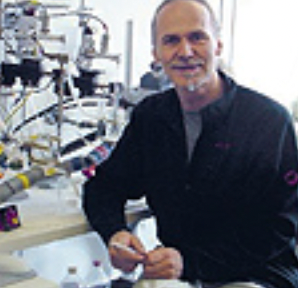Course Details
-
Main SubjectChild Development
-
Course TypeOnline Live
-
CPD Points2
-
DateOctober 22, 2024 7:00 pm - 9:00 pm
-
Price45
Provided by the Course Advertiser
Speaker Details
-
ExpertiseChild Development
-
Offerd ByCPDO
Description
Scoliosis is usually defined as a 3-dimensional curvature of the spine, which is mostly based on the classical assessment procedure via x-ray imaging. However, recent investigations indicate that the spine is less a driver than a follower in relation to preceding shifts in the tensional connections of the surrounding myofascial tissues.
Coupled with the novel insights about the PIEZO2 receptors and their frequent involvement in idiopathic scoliosis (see Nobel award 2021), this new perspective opens the door to explore a multitude of fascia-oriented treatment techniques, which will be discussed in this webinar, in addition to the basic anatomy and science behind it. Treatment suggestions include manual therapy and also movement-oriented approaches, such as in yoga, Pilates, etc.
Dr. Robert Schleip is a former long-term instructor of the Rolfing as well as the Feldenkrais method, who has now turned his focus into scientific research related to fascia. He is director of the Fascia Research Group (Technical University of Munich & Ulm University, Germany), Founding Director of the Fascia Research Society, and Research Director of the European Rolfing Association. In addition to an MA degree in clinical psychology he has a PhD degree in human biology, and is now research professor at the Diploma University of Applied Sciences in Germany. His laboratory research on active fascial contractility was awarded by the Vladimir Janda Award for Musculoskeletal Medicine.
• Info on Dr. Schleip’s research: www.fasciaresearch.de
• His personal website: www.somatics.de
• ARTE TV report on fascia research, including that of Dr. Schleip
The course will provide for OSTEOPATHIC PRACTICE STANDARDS CPD requirements in the following areas:
2 hours Learning with Others
OPS CPD Requirements
Learning include
Communication and patient partnership
Listening, respecting patient's concerns and preferences, dignity and modesty, effective communication, providing information, consent, patient partnership.
Knowledge, skills and performance
Having sufficient knowledge and skills, working within training and competence, keeping up to date, analysing and reflecting on information to enhance patient care.
Safety and quality in practice
Patient evaluation, management, safeguarding, wider role in enhancing patients' health and wellbeing.





Add a review